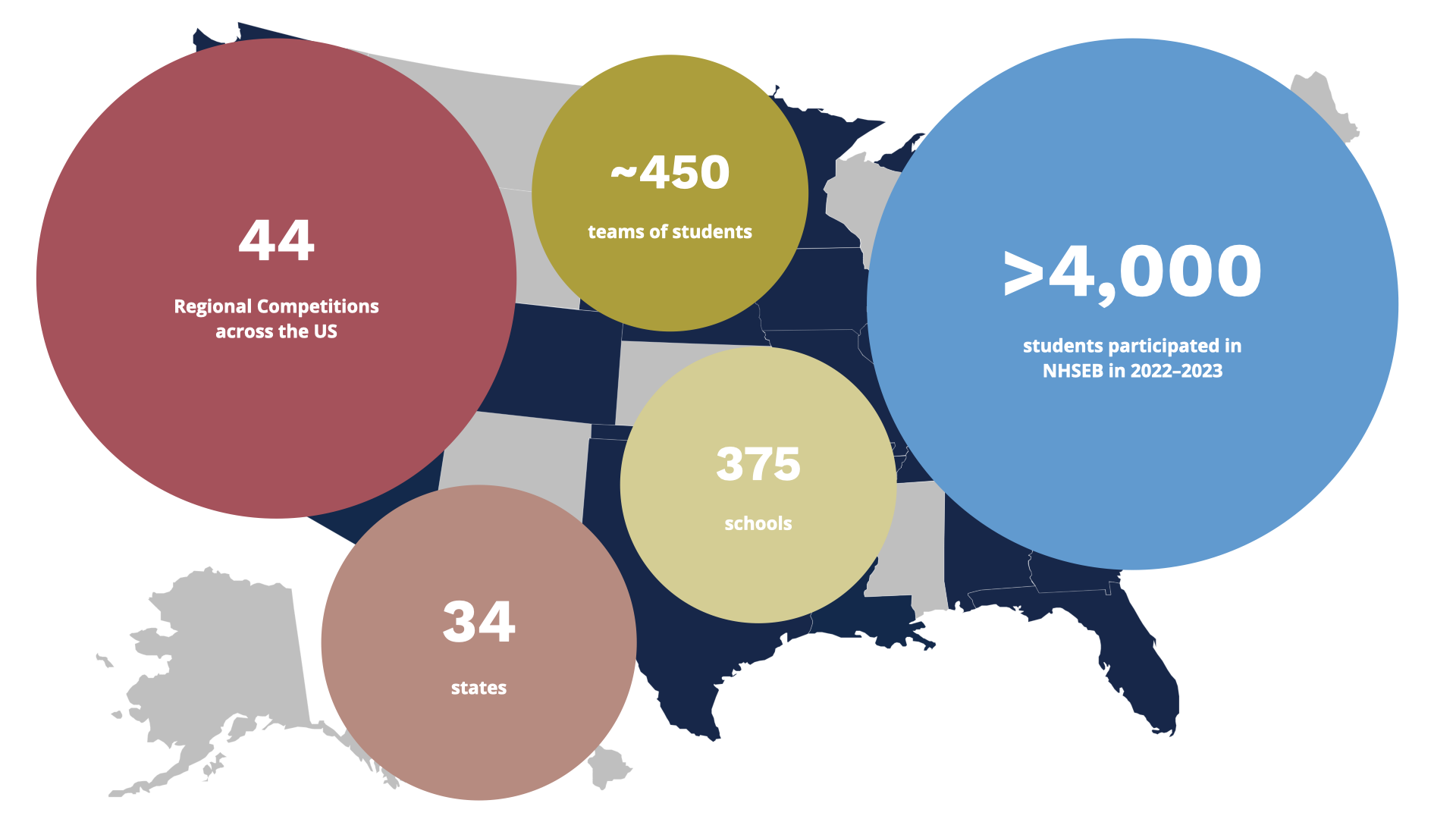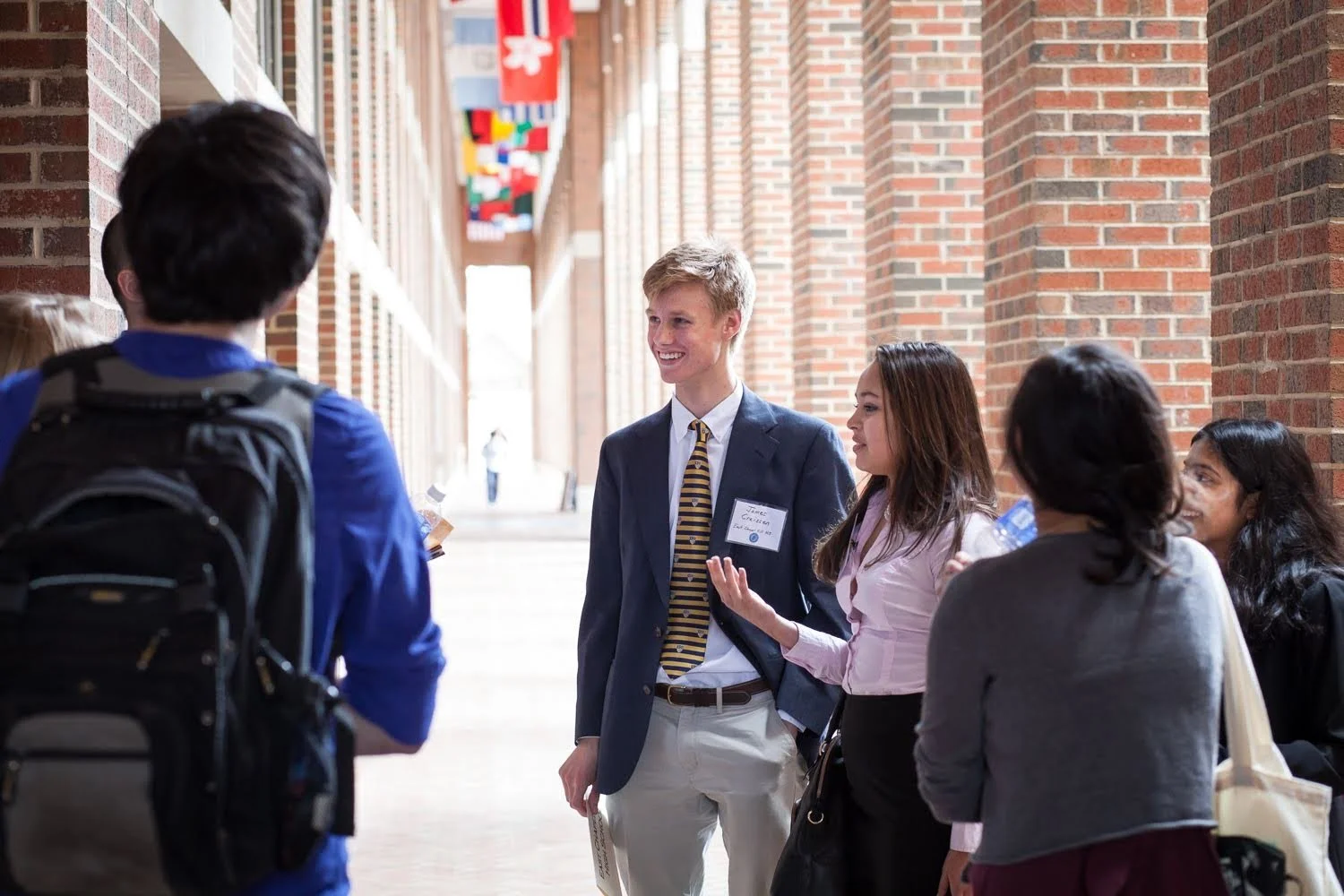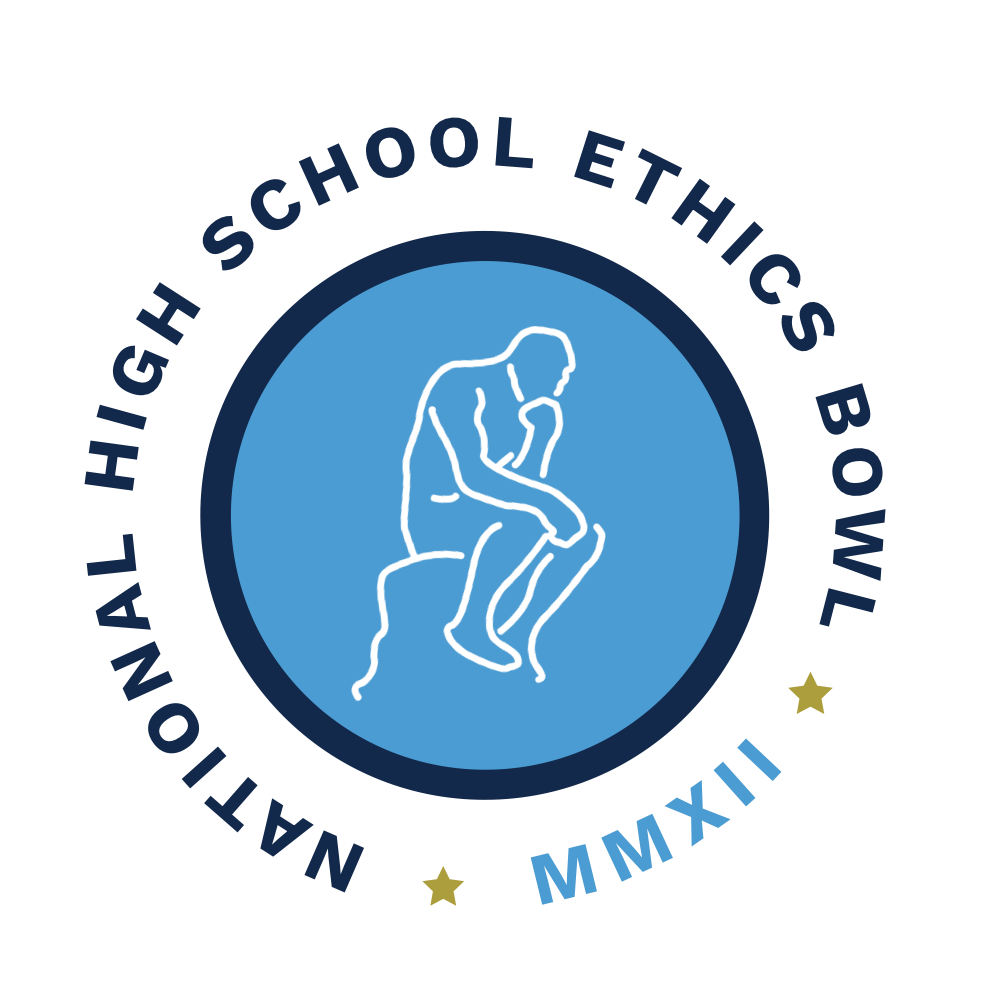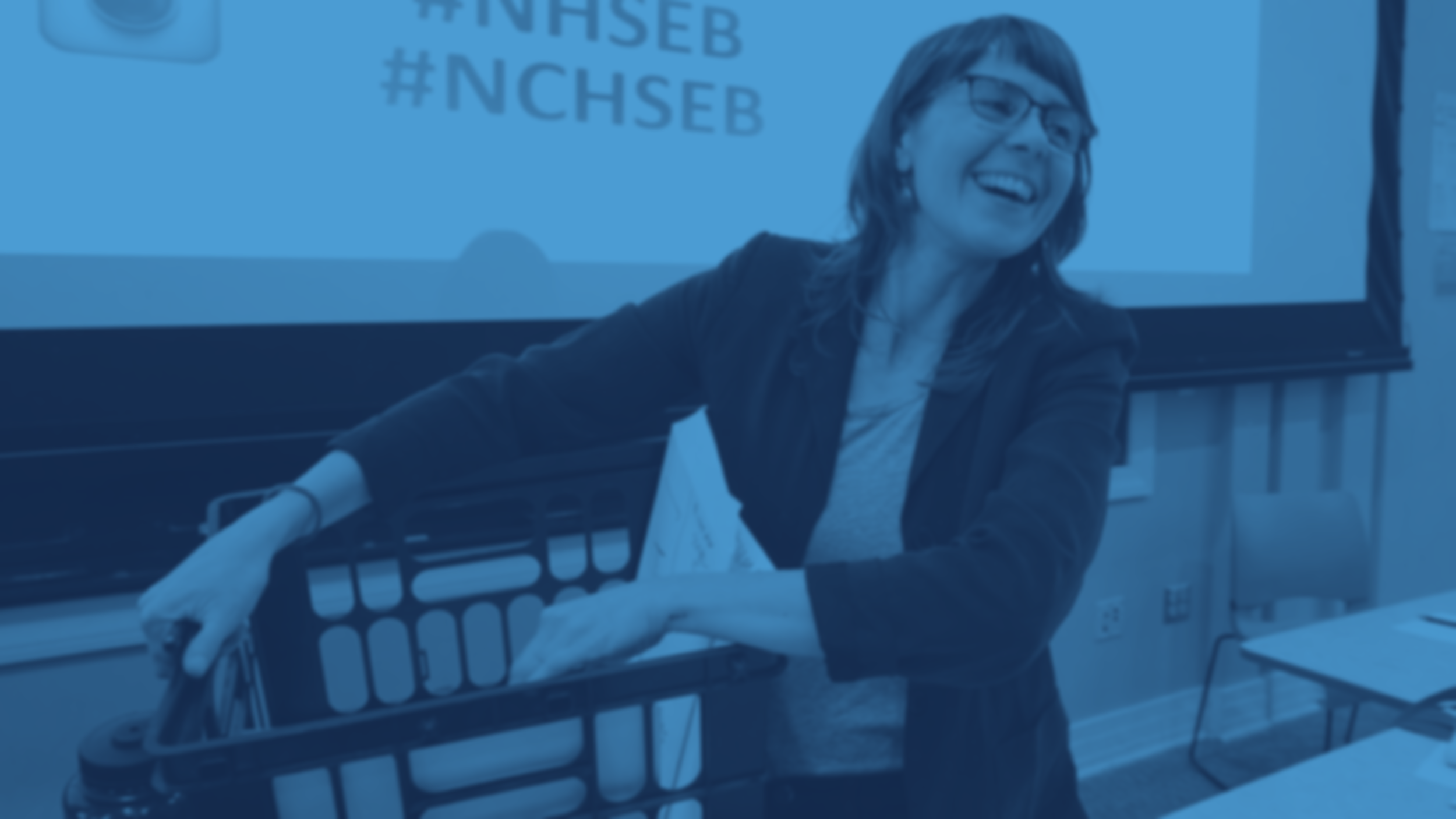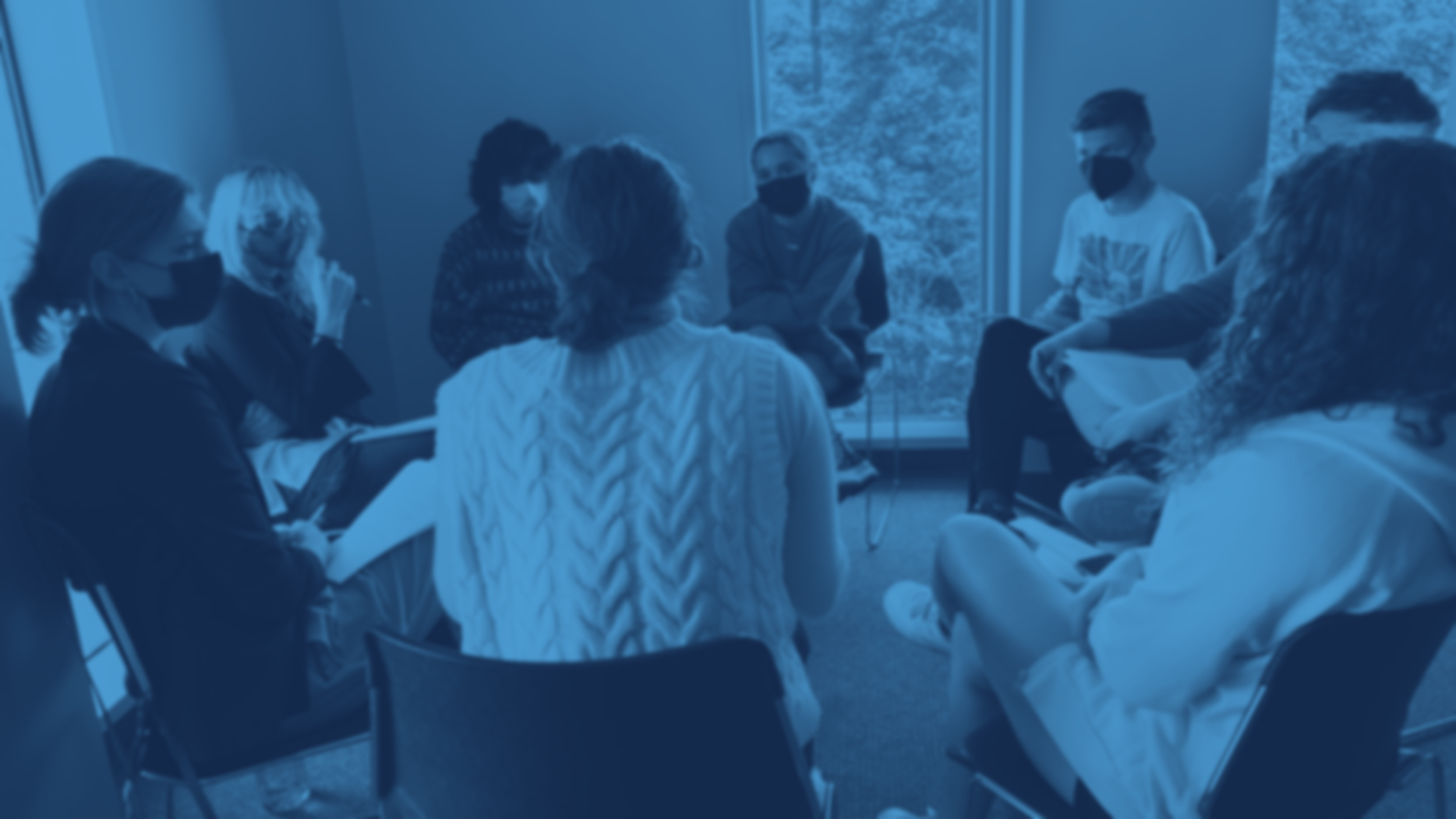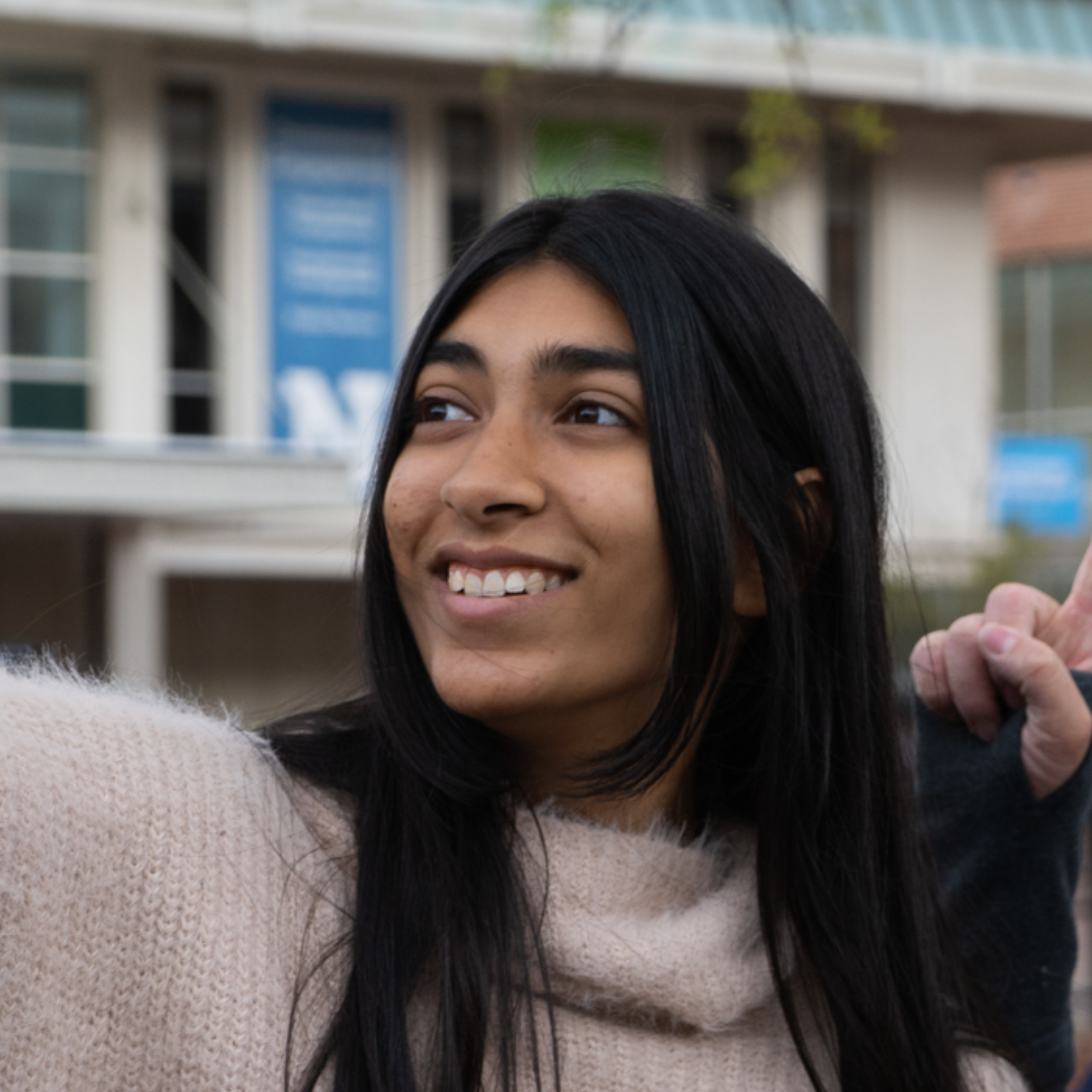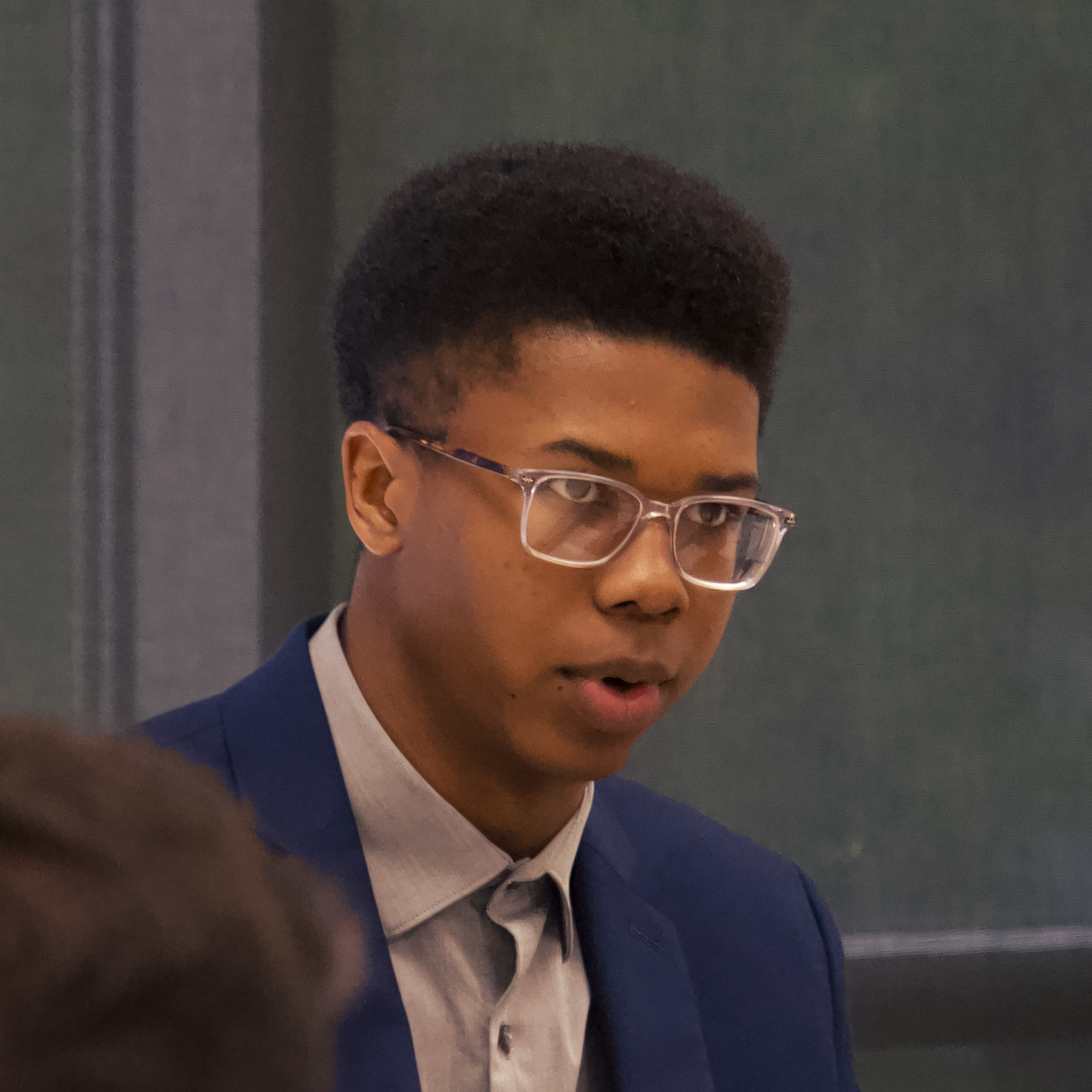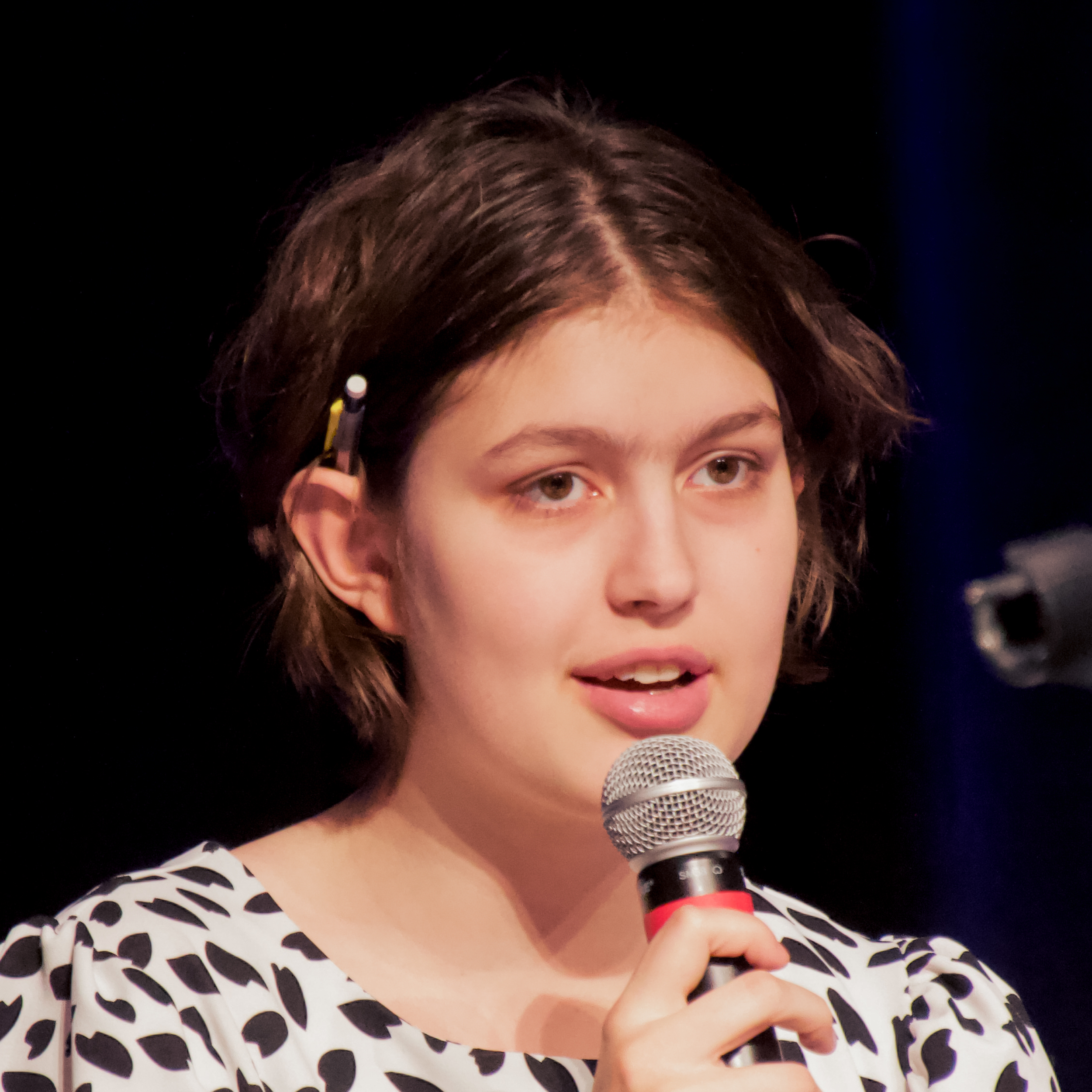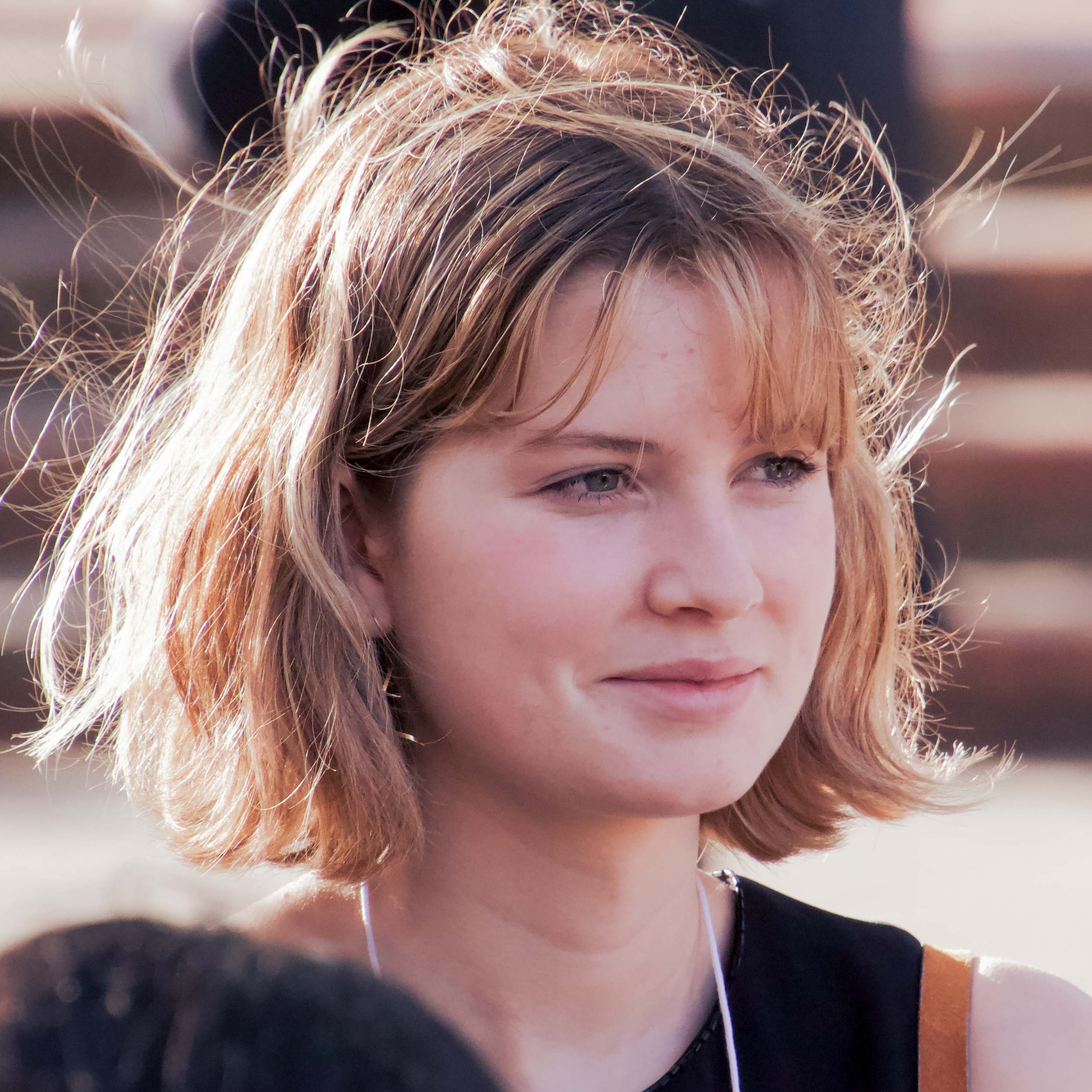
Mission, History, and Impact
Mission STATEMENT
The National High School Ethics Bowl promotes respectful, supportive, and in-depth discussion of ethics among high school students nationwide.
By engaging high school students in intensive ethical inquiry, the NHSEB fosters constructive dialogue and furthers the next generation’s ability to make sound ethical decisions. Our collaborative model rewards students for the depth of their thought, their ability to think carefully and analytically about complex issues, and the respect they show to the diverse perspectives of their peers. As a result, it enables students to practice and build the virtues central to democratic citizenship, thus preparing them to navigate challenging moral issues in a rigorous, systematic, and open-minded way.
COMMUNITY SNAPSHOT
The National High School Ethics Bowl serves a large and diverse community of thousands of Students, hundreds of Coaches and Regional Organizers, Volunteers, Alumni, and other supporters all over the country. As of 2023-2024, our program is in 34 states and is growing all the time. Odds are, there’s already an NHSEB Regional Competition near you. If there isn’t, please contact us for information about starting one.
Data: 2022-2023 Impact Study; EOY Surveys
A BRIEF HISTORY
OF NHSEB
The National High School Ethics Bowl was co-founded in 2012 by the University of North Carolina’s Parr Center for Ethics and the Squire Family Foundation, with generous support from GlaxoSmithKline. A decade later, NHSEB is the largest public philosophy program in the United States.
NHSEB’s foundation and The Early Years
In its inaugural year, the NHSEB program served around 1,000 students from 89 schools in 11 states. Some Regional High School Ethics Bowls had been ongoing before NHSEB’s official foundation. After NHSEB’s first official slate of Regional Competitions, 12 winning teams attended the inaugural National High School Ethics Bowl Championship, held adjacent to the UNC-Chapel Hill campus in Durham, NC. At the time of its founding, NHSEB’s overarching ideals were three-fold: (1) to take seriously the contributions that high school students make as members of their communities, (2) to cultivate deliberative skills and virtues central to democratic citizenship, and (3) to prepare students to navigate challenging moral issues in a thoughtful and constructive way. All of these goals remain our north star today, and comprise the metrics by which we evaluate the program’s successes. The NHSEB program was originally modeled on the APPE Intercollegiate Ethics Bowl (APPE IEB), founded in 1993 by Professor Robert Ladenson of the Illinois Institute of Technology, who had created the Ethics Bowl format as a lesson plan for an undergraduate course in practical ethics only a few years before. The Parr Center is indebted to the Association for Practical and Professional Ethics, as well as to Professor Ladenson personally, not only for their fierce example and inspiration, but for their direct assistance in building the National High School Ethics Bowl in its early and formative years.
In those early years, the National High School Ethics Bowl was defined and shaped as a moral and civic education program by its first Executive Committee—a collection of stakeholders from the Parr Center for Ethics and the Squire Family Foundation: Jan Boxill (UNC), Roberta Israeloff (SFF), Geoff Sayre-McCord (UNC), Katie Fanfani (UNC), Katelin Kaiser (UNC), Adam Schaefer (UNC), and Matt Deaton (SFF). Under their leadership, the program flourished, and began an ongoing trajectory of expansion from a small coalition of states to a truly national endeavor. As the program grew, so too did its administrative needs. Thanks to generous multi-year support from the Kenan Charitable Trust, the Parr Center appointed NHSEB’s first dedicated Director, Dr. Dominique Déry, in 2016. While the Executive Committee remained in place to advise her, NHSEB’s administration and day-to-day operations were taken over by the new Director. A political scientist focused on civic friendship and democratic norms (Ph.D., Duke), Déry brought a new burst of energy and expertise to the program’s development. During her tenure, NHSEB grew like wildfire, blowing past a long-aimed for milestone of having Regional Competitions in half of U.S. states, in 2018. During those years, NHSEB also enjoyed increasing public recognition—via a new program sponsorship by the Marc Sanders Foundation, recognition by the National Humanities Alliance’s Humanities for All initiative, and financial support from the American Philosophical Association for targeted expansion of NHSEB Regional Competitions to new states during the 2018-2019 academic year.
In mid-2019, as Déry announced her departure, the Parr Center appointed Dr. Alex Richardson as the second Director of the National High School Ethics Bowl. A political philosopher and award-winning teacher focused on the value of civility in democratic theory (Ph.D., Tennessee), Richardson brought a reinvigorated sense of pedagogical focus for the NHSEB program and a renewed eye toward access and inclusion, as well as a introducing modernized design language across the program’s educational materials and media presence. In his first year as Director, Richardson also built upon previous plans for an informal steering committee to formalize NHSEB’s first Advisory Board. Despite a strong start in 2019-2020 as the NHSEB program continued to grow at a steady clip, Richardson and the Parr Center team would soon be tasked with a response to turbulent times not only for NHSEB, but for the country and the world.
NHSEB’s Response to COVID-19
In 2020, the National High School Ethics Bowl came to a critical juncture in its development. In March of that year, the early stages of the COVID-19 pandemic shut down much of the world, causing the cancelation of the 2020 National Championship. That Spring, in response to much internal and community disappointment at this necessary decision, the Parr Center announced the NHSEBOnline pilot project—an early and prototypical preview of things to come for the program during COVID-19. That initiative, designed to provide supplementary programming for students who had been invited to the 2020 National Championship, included an asynchronous video-driven case discussion forum made possible by a partnership with VoiceThread, a series of synchronous case-based “huddle” discussions, and a public celebratory NHSEBOnline Summit for the 2019-2020 NHSEB season.
After the 2019-2020 season ended that Spring, and amidst uncertainty about what the world would look like later that year, the Parr Center team heard from students, teachers, and organizers all across the country. Their message was resounding and clear—the Ethics Bowl activity, if at all possible, should continue to be available to students during the COVID-19 pandemic. This presented an incredible—maybe even existential—challenge. After all—how can you have close, careful conversations with your peers, if not together? So, the team got to work, working to learn from and build on both the successes and the shortcomings of the NHSEBOnline experiment. In September of 2020, after a full summer of consulting with the program’s key stakeholders, Director Alex Richardson announced that NHSEB would launch its next season in 2020-2021 with a comprehensive COVID-19 response designed to provide continuity and consistency across the program’s core offerings. That plan included three major initiatives which remain in place today as key cornerstones of the National High School Ethics Bowl:
NHSEB Seal (2016)
NHSEBOne: A direct answer to worries about doing Ethics Bowl together during the pandemic, NHSEBOne was designed in partnership with EnableEducation as a dedicated administrative and event platform for NHSEB Regional Competitions in 2020-2021. It was designed to bring videoconferencing functionality alongside interactive Ethics Bowl tools like timers and scripts for moderators, cases and conferral spaces for students, and in-match scoring functionality for judges. The initial development of NHSEBOne was made possible by financial support from the Marc Sanders Foundation and the Squire Family Foundation, as well as a consortium of NHSEB Regional Competitions from all across the United States, and international affiliates in Canada. Version 1.0 of NHSEBOne was activated in January of 2021, and was used to conduct over 75% of NHSEB’s Regional Competitions (37 U.S. events as well as several international ones) during the 2020-2021 Season.
NHSEBAcademy: A new way of taking seriously the kind of learning that happens in preparation for High School Ethics Bowls across the country, NHSEBAcademy was designed to provide a one-stop shop for learning resources about and around the National High School Ethics Bowl. The initial version of NHSEBAcademy, first launched in October 2020, included a library of static, graphic, and video training materials, a new series of online events (NHSEBAcademy Live) as well as a small on-demand coaching program (NHSEBAcademy Studio). In concert, NHSEBAcademy resources and events engaged around one thousand students and teachers in 2020-2021.
NHSEBBridge: Initially a way of thinking carefully about the NHSEB program’s growth during the COVID-19 pandemic, NHSEBBridge was first announced in 2020 as a “borderless” Regional Competition for teams in their first year of involvement with the Ethics Bowl activity, emphasizing schools from underserved communities and states in which there are not current NHSEB-affiliated programs. From its inception, NHSEBBridge was tightly integrated with a service-learning course in the UNC Department of Philosophy in order to provide participating schools with training, orientation, and formative feedback as they prepared for competition. This initiative made available UNC undergraduates to coach participants (both students and teachers) on moral theory, ethical reasoning, argument construction, bowl mechanics, etc., in a series of virtually conducted 1:1 site visits. The experimental NHSEBBridge Regional Competition occurred on December 5, 2020—with Nevada’s Davidson Academy taking top honors among 8 teams, and proceeding to NHSEB’s 2020-2021 Playoff Circuit later that school year.
Thanks to these new initiatives, the 2020-2021 season was a resounding success. In a short introduction to kick off the 2021 National Championship—the first in NHSEB’s history conducted online via NHSEBOne—Director Alex Richardson highlighted the program’s successes and accomplishments, which included not only near-universal retention of NHSEB’s participants that year, but the program’s continuing growth and expansion. NHSEB not only persisted during the disruptive early days of the pandemic, it thrived, thanks to its partners, supporters, and participants across the United States.
Since then, NHSEB has worked to transition back to primarily in-person events and programming in the wake of the pandemic. The 2021-2022 season was conducted in hybrid fashion, thanks to the outbreak of COVID-19’s Omicron variant—but was a great success. That year also saw the expansion of the NHSEBOne, NHSEBBridge, and NHSEBAcademy programs built for the early days of COVID, and their ongoing integration into the National High School Ethics Bowl’s programming. For its response to COVID-19, the National High School Ethics Bowl was honored in December 2021 with the American Philosophical Association and Philosophy Documentation Center’s prestigious Prize for Excellence and Innovation in Philosophy Programs—the third such award for a Parr Center program. APA’s selection committee highlighted these programs in particular as “evidence of philosophers doing their best work in a public forum to advance the public good.” In late 2021, APA also announced generous financial support for the NHSEBBridge program as part of its Diversity and Inclusiveness Grants program. The 2021-2022 season culminated in the 2022 National Championship, which returned Ethics Bowl students to the Chapel Hill campus in-person for the first time since 2019.
NHSEB10: CELEBRATING THE FIRST DECADE AND MOVING NHSEB FORWARD
In 2022-2023, on the heels of NHSEB’s COVID response and a return to in-person operations around the country, came the tenth anniversary of the program’s founding in 2012-2013. In the summer months of 2022, before the tenth anniversary season officially began, the community celebrated a major milestone. Thanks to the generosity of the Parr Center’s founding donor and namesake, Gary Parr, NHSEB received the first dedicated endowment funding in its history. While not the only financial gift supporting NHSEB, these funds represent the program’s first major investment which will continue in perpetuity. Parr’s 2022 gift has already made a major difference to NHSEB’s operations budget after just one year, and we are extremely grateful for this new level of support.
As the community prepared for the Fall 2022 launch of the “NHSEB 10” season as it came to be called, the Director and Executive Committee saw an opportunity to celebrate the ten-year milestone with another major update, this time, to NHSEB’s branding and design language. In July of 2022, the Parr Center announced an end-to-end rebrand of the National High School Ethics Bowl program—its first major design overhaul since its first official seal was adopted in 2016. The refresh featured a brand new seal lockup—updating NHSEB’s take on the classic image of Auguste Rodin’s The Thinker for a new decade and beyond, as well as providing a comprehensive set of design assets, style guidelines, and other resources for the NHSEB community. The overall look was carefully designed to celebrate NHSEB’s large and diverse community, and to represent the spirit of the activity: one of excitement, friendliness, and collaboration. After a months-long initial refresh to NHSEB’s existing web presence and platforms, program materials, and public relations resources, the NHSEB 10 rebrand was completed in the Spring of 2023 with the long-awaited launch of the program’s redesigned web presence at NHSEB.org.
NHSEB Seal (2022)
As we officially kicked off NHSEB 10, a number of additional priorities for the program’s tenth year came into focus. The top priority for HQ in 2022-2023 was to replace NHSEB’s aging ad hoc Regional Playoffs system, which had for some years struggled to keep up with the prodigious growth of the NHSEB community. In view of this challenge, NHSEB designed and began the implementation of a new Divisional Playoffs system, which would see the country subdivided geographically for an intermediary circuit of Ethics Bowl competition situated between Regional Competitions and the National Championship. Teams qualified for and through this process for the first time in 2022-2023, in a series of single elimination playoff matches, clustered geographically and administered by NHSEB’s new divisional partners: the brand new Cincinnati Ethics Center at the University of Cincinnati (Northeastern Division), the Prindle Institute for Ethics at DePauw University (Central Division), and the Center for Public Philosophy at the University of California, Santa Cruz (Western Division). Further expansion of NHSEB’s Divisional Playoffs circuit is planned for 2023-2024 and beyond, as the community around our activity continues to grow.
In terms of staffing and administration, the program’s tenth anniversary saw the formalization of key changes to NHSEB’s administrative structure and the Advisory Board first formally constituted in 2020. After a one-year pilot in 2021-2022, NHSEB permanently established two new positions for student staffers. Delaney Thull, a Ph.D. candidate in the UNC Department of Philosophy was appointed as NHSEB’s first dedicated Graduate Assistant in 2021-2022, and in 2022-2023 assumed leadership over the NHSEBBridge program as well as instructional responsibility for connected coursework on the Chapel Hill campus. Austin Foushee, himself an Ethics Bowl alumnus, was appointed as NHSEB’s first Undergraduate Assistant, assisting the Director and Executive Committee with day to day operations of the program from 2021-2023. The NHSEB Advisory Board saw the implementation of a more formalized working structure involving three new sub-committees, a quarterly meeting schedule, and the addition of NHSEB’s first Student Advisory Council—a project conceived of, designed, and implemented by Foushee. Students from each of NHSEB’s newly formed geographic Divisions were appointed to begin terms in late 2022: Darya Loiko of East Chapel Hill High School (NC) Reem Kadimi-Skalli of Hilliard Bradley High School (OH), Grant Sheft of the Horace Mann School (NY), and Ana Yañez of Colorado Academy (CO).
As a final priority for NHSEB’s tenth anniversary season, the Parr Center launched and conducted the first national, longitudinal impact study on the National High School Ethics Bowl. While NHSEB HQ had been steadily increasing its analytics and program assessment footprint since 2019, rigorous scientific assessment of the activity’s learning outcomes for students has remained an important frontier. After some early experimentation with various measures from social and developmental psychology in early 2022, the Center launched its 2022-2023 Impact Study under the direction of Consulting Research Scientist Dr. Michael Prinzing (Yale), who served as the principal Investigator on the project, and coordinated by the Center’s Outreach Director, Dr. Michael Vazquez. The results of this initial study are forthcoming in 2023, as are additional research and assessment projects currently in development.
The 2022-2023 season of the National High School Ethics Bowl culminated with the 2023 National Championship, conducted March 31-April 2, 2023 on the UNC Chapel Hill campus. 24 teams from 22 states competed for the championship title, discussing difficult cases and raising incisive questions about psychadelic drugs, immigration, data privacy, and generative artificial intelligence. In addition to the national competition, NHSEB celebrated its tenth anniversary with a wealth of fun and educational Beyond the Bowl programming for students and coaches, a national summit of the NHSEB Advisory Board, and the introduction of a number of new prizes and awards. These included NHSEB’s first Coach of the Year Award—inaugurally held by Pam Antos and Merry Guerrera of the Hilliard City School District (OH) as well as the announcement of a new Alumni Scholarship, named for NHSEB alumnus and inaugural Undergraduate Assistant, Austin Foushee.
The National High School Ethics Bowl has seen many challenges and successes alike in its first decade of life. We hope you’ll join us for NHSEB’s second decade and beyond.
SOME Key PROGRAM Milestones
ANNUAL AWARD WINNERS BY YEAR
Learn about NHSEB’s National Championship and Community Awards here.
-
NHSEB National Champion: BASIS Flagstaff
NHSEB Runner-Up: All Saints Academy
Third Place Finish: Lincoln High School
Fourth Place Finish: Midtown High School
Robert Ladenson Spirit of the Ethics Bowl Award: Dorman High School
NHSEB Coach of the Year Award: Edwin Marks, Penn Charter Pennsylvania
Heely Social Media Awards
Heely Award—Aesthetic Adversaries: Midtown High School (feat. Pleasant Valley High School)
Heely Award—Besties with Ramses: Hopkins School
Heely Award— Ethics Droll: The Westwood School
Heely Award— Chapel Thrill: The Westwood School
Heely Award—Platonic Rizz: Hopkins High School and Dwight Englewood School
Student Case Competition
Winner: “A Sacred Divide“ by Sefanit Abebe, Wheaton High School
Honorable Mention: “My Camera Eats First“ by Corrine Wang, Lincoln High School
Honorable Mention: “Build a Baby” by Ayushi Wadhwa & Sonia Nikhil, Kent Place & Watchung Hills Regional High School
-
NHSEB National Champion: Hickman High School
NHSEB Runner-Up: Harvard-Westlake School
Third Place Finish: Saline High School
Fourth Place Finish: BASIS Flagstaff
Robert Ladenson Spirit of the Ethics Bowl Award: Franklin Academy
Judges’ Choice Award: Princeton High School
NHSEB Coach of the Year Award: Lynne Lundberg, Pleasant Valley High School
Heely Social Media Awards
Heely Award—Besties with Ramses: Saline High School
Heely Award—Don’t Judge Me: Campbell High School
Heely Award—Huddle Buddies: BASIS Flagstaff
Heely Award—Platonic Rizz: Medford High School
Student Case Competition
Winner: “Get Into Jail Free Card” by Isabelle Robinson, Edwardsville High School
Honorable Mention: “A Killer Dilemma” by Nina Stadermann, Dougherty Valley High School
Honorable Mention: “The Beauty in the Beast?” by Leonardo Damato, Regis High School
-
NHSEB National Champion: Skyline High School
NHSEB Runner-Up: Regis High School
Third Place: Chapel Hill High School
Fourth Place: Medford High School
Robert Ladenson Spirit of the Ethics Bowl Award: James River High School
Judges’ Choice Award: Tigard High School
Coach of the Year Award: Pam Antos and Merry Guerrera, Hilliard School District (Ohio)
Heely Social Media Awards
Chapel Thrill (Best Photo with UNC Landmark): Tigard High School
Besties with Ramses (Best Post with UNC Mascot): Maryville High School
Ethics Droll (Best Social Media Ethics Pun): Campbell High School
Huddle Buddies (Best Photo of 2+ Teams): St. Ignatius Preparatory School
Platonic Rizz (Best Photographic Recreation of Raphael’s School of Athens): Hickman High School
Student Case Competition
Winner: “Frankenstein Child” by Sasha Bauhs, The Pingry School
Honorable Mention: “David Rohde” by Katheryn Plotner, Skyline High School
Honorable Mention: “Is Hockey for Everyone?” by Bella Fritz, The Seattle Academy of Arts and Sciences
-
Winner: Princeton High School (NJ)
Second Place: University High School (CA)
Third Place: UWC-USA (NM)
Fourth Place: Kent Place School (NJ)
Robert Ladenson Spirit of the Ethics Bowl Award: Clearwater Central Catholic High School (FL).
Judges’ Choice Award: Classical Christian Studies (OK); Bethpage High School (NY).
Case Competition
Winner: Beyond the Hashtag by Yunah Kwon (Centennial High School)
Honorable Mention: Elected Judges by Luis Brea (Fairfield Preparatory School)
Honorable Mention: To Ban or Not to Ban by Kyle Kim and Krishna Nagarajan (Canyon Crest Academy)
The 2022 NHSEB Awards Ceremony is viewable here.
-
Winner: University High School (CA)
Second Place: Kent Place School (NJ)
Third Place: Hackley School (NY)
Fourth Place: Oxbridge Academy (FL)
Robert Ladenson Spirit of the Ethics Bowl Award: The Academy at Palumbo (PA).
Case Competition
Winner: Edited Embryos by Sarang Min, Nicole Chen, Amber Yeung (University High School)
Honorable Mention: Airport Security by Trevor Brooks (Oakwood Friends School)
Honorable Mention: CPR Conundrum by Sarah Cheyney (Stuyvesant High School)
The 2021 NHSEB Awards Ceremony is viewable here.
-
2019-2020 National Finalists
Ames High School (Iowa)
Ann Arbor Greenhills School (Michigan)
Atlantic Community High School (Florida)
Cary Academy (North Carolina)
Conestoga High School (Pennsylvania)
Cypress Charter School (California)
Decatur High School (Georgia)
Dove Science Academy (Oklahoma)
Hilliard Davidson High School (Ohio)
Lincoln High School (Oregon)
Lincoln School (Rhode Island)
Little Rock Central High School (Arkansas)
Marion High School (Illinois)
Medford High School (Massachusetts)
Peak to Peak High School (Colorado)
Rockbridge High School (Missouri)
School Without Walls (Washington, D.C.)
St. Andrew’s – Sewanee School (Tennessee)
Stanton College Prep High School (Florida)
Stony Brook School (New York)
The Hackley School (New York)
The Masterman School (Pennsylvania)
Walter Payton High School (Illinois)
Westwood High School (Texas)
Case Competition
Winner: The Korean Pop Industrial Complex, by Camille Luong (St. Petersburg HS, FL) and Maggie Sun (Arcadia HS, CA)
Honorable Mention: Don’t Check That Box, by Jenny Duan (Jesuit HS, OR)
Honorable Mention: A Sardonic Sarco, by Riya Kataria (Irvington HS, CA)
-
Winner: Jesuit High School (OR)
Second Place: Choate Rosemary Hall (CT)
Third Place: St. Petersburg High School (FL)
Fourth Place: Colorado Academy (CO)
Robert Ladenson Spirit of the Ethics Bowl Award: Decatur High School (GA); Benjamin Banneker Academic High School (DC)
-
Winner: Kent Place School (NJ)
Second Place: Stanford Online High School (CA)
Third Place: Glendora High School (CA)
Fourth Place: Maryville High School (TN)
Robert Ladenson Spirit of the Ethics Bowl Award: Gregorio Luperon High School; Herron High School; Tatum High School
-
Winner: North Carolina School of Science & Mathematics (NC)
Second Place: Oregon Episcopal School (OR)
Third Place: Kent Place School (NJ)
Fourth Place: Herron High School (IN)
Robert Ladenson Spirit of the Ethics Bowl Award: Wayne Memorial High School (MI)
-
Winner: East Chapel Hill High School (NC)
Second Place: Harvard-Westlake High School (CA)
Third Place: David H. Hickman High School (MO)
Fourth Place: Greenhills High School (MI)
Robert Ladenson Spirit of the Ethics Bowl Award: Herron High School (IN)
-
Winner: Waterford High School (UT)
Second Place: Phillips Exeter Academy (NH)
Third Place: Areté Preparatory Academy (CA)
Fourth Place: Newport High School (WA)
Robert Ladenson Spirit of the Ethics Bowl Award: Kirby School (CA)
-
Winner: East Chapel Hill High School (NC)
Second Place: Jericho High School (NY)
Third Place: Hickman High School (MO)
Fourth Place: Cherry Hill High School East (PA)
-
Winner: St. Petersburg High School (FL)
Second Place: East Chapel Hill High School (NC)
Third Place: Triangle Homeschool (NC)
Fourth Place: Farmingdale High School (NY)
WHY ETHICS BOWL?
NHSEB cultivates crucial democratic skills and dispositions which are academically, socially, and civically beneficial for students.
Academic Benefits
Participation in the NHSEB program fosters dispositions that are not only academically crucial, but portable, e.g., critical reasoning about real-world problems, systematic argumentative analysis, and oral communication skills.
Social Benefits
NHSEB engages thousands of students across the United States each year. These students come from highly diverse communities and walks of life, and gain transformative experiences in reasoning and collaborating across difference.
CIVIC Benefits
NHSEB's conversational format differs from debate in its focus on student agency and productive discussion over deep, fundamental disagreements. This core skill is crucial for students as members of moral and political communities.
PARTICIPANT IMPACT
Students and their coaches often consider the NHSEB to be truly empowering experience, capable of fundamentally transforming the way that young people view themselves in the world. Among students participating in the program in 2022:
92%
strongly agreed or agreed that NHSEB helps foster teamwork and collaboration among students.
89%
strongly agreed or agreed that NHSEB is unlike any other activity available in their high schools.
82%
strongly agreed or agreed that they were now interested in studying philosophy and/or ethics.
95%
strongly agreed or agreed that NHSEB encourages thoughtful engagement with differing views.
99%
strongly agreed or agreed that NHSEB encourages critical thinking skills
“I value the opportunity to have thoughtful discussions with other students without feeling pressure to uphold my position to the bitter end. I like that it is important to acknowledge the faults in my team’s argument instead of ignoring everything that doesn’t directly support our position.”
— Student Participant
IN THEIR OWN WORDS
“I have become more confident within the classroom. I have begun participating more often in class discussions and I am not afraid of my ideas being shot down by my opposition. Instead, I appreciate criticism because it has the ability to make my opinions and ideas stronger.”
— Student Participant
“There has never been an experience or a greater tool that has made me believe not only that I can be a better person, but that I can challenge the world to be better, and that there is that possibility… There’s so many things that get lost in the politics and the negative side of the world, but [Ethics Bowl] gives you a genuine platform to challenge the world to be better, and I think that’s really special.”
— Student Participant
